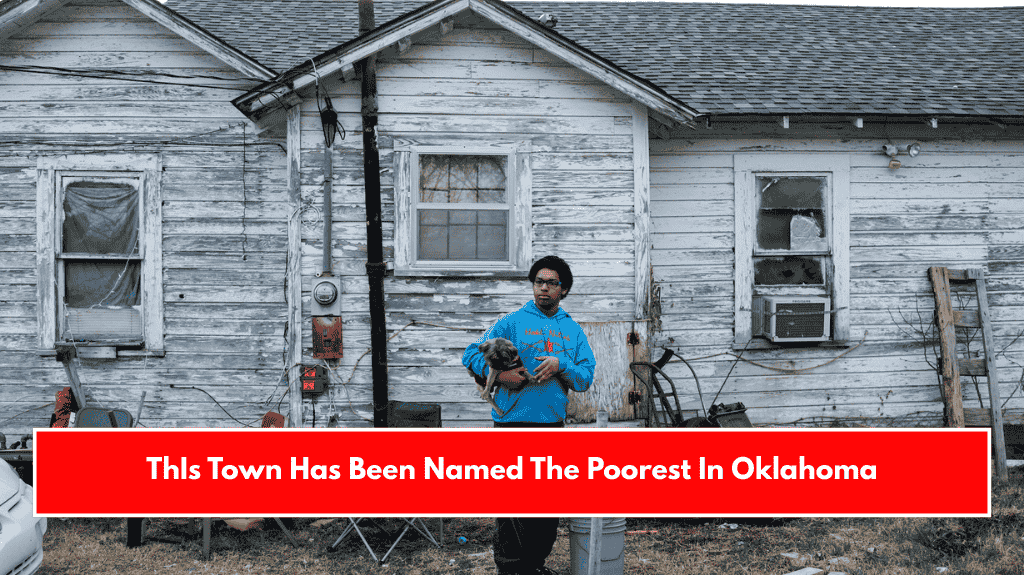Hugo, located in Choctaw County in southeastern Oklahoma, consistently ranks as the poorest town in the state based on multiple socioeconomic indicators. Despite its rich history and cultural significance, Hugo faces persistent economic challenges that have shaped the lives of its residents for generations.
Location and Background
Hugo sits just nine miles north of the Texas state line and serves as the county seat of Choctaw County. Founded in 1901 and named after the French novelist Victor Hugo, the town has a unique legacy as the winter home for several circus companies, earning it the nickname “Circus City, USA”. The area is known as “Little Dixie” due to its settlement by Native American tribes, African Americans, and European Americans from the southeastern United States.
Population and Demographics
As of 2025, Hugo’s population is estimated at just over 5,190, making it the 73rd most populous city in Oklahoma out of 834 municipalities. The town is relatively young, with a median age of 33.6 years. The largest racial and ethnic groups in Hugo are White (46.3%), Black or African American (19.3%), and American Indian (13.6%).
Economic Realities
Hugo’s economic struggles are stark:
- Median Household Income: The median household income in Hugo is $31,694, which is significantly lower than both the state and national averages. In some tracts of the city, such as Census Tract 9672, the median household income drops to just $18,000—about a third of the state median.
- Poverty Rate: Hugo’s poverty rate is among the highest in Oklahoma. Approximately 32% of residents live below the poverty line, with some areas experiencing poverty rates as high as 52%. This is more than double the state average of 15%.
- Home Values: The median property value in Hugo is $96,100, and in the poorest census tract, it is as low as $56,000—far below the state median of $150,000.
- Employment and Opportunity: The town faces limited job opportunities, with residents often citing a lack of employment options and training facilities. Many jobs are tied to a small number of sectors, and infrastructure issues, such as aging water lines and poor road conditions, further hinder economic development.
Community Life and Challenges
Residents describe Hugo as a small, close-knit community with a strong sense of mutual support. However, the lack of economic opportunity is a recurring theme. The town has only one career tech school and one welding school, limiting access to vocational training. Infrastructure problems are a significant concern, with frequent water line breaks disrupting daily life and business operations.
Despite these challenges, some residents appreciate the town’s small size, sense of community, and proximity to larger cities for shopping and entertainment. Hugo’s unique history and cultural sites, such as the circus cemetery and Goodland Academy (one of the oldest boarding schools west of the Mississippi), add to its character.
Why Is Hugo So Poor?
Several factors contribute to Hugo’s economic difficulties:
- Rural Location: Like many small towns in Oklahoma, Hugo has struggled as populations shift toward urban areas, leading to a shrinking tax base and fewer local businesses1.
- Limited Industry: The town lacks significant industrial or commercial development, restricting job growth and upward mobility.
- Educational Attainment: In the poorest areas, only 77% of residents have a high school diploma, compared to the state average of 88%.
- Aging Infrastructure: Persistent infrastructure issues deter new businesses and make daily life more challenging for residents.
Looking Forward
Despite its economic hardships, Hugo remains a resilient community. Its residents continue to support one another, and the town’s unique heritage and location offer potential for tourism and cultural preservation. However, meaningful economic improvement will likely require investment in infrastructure, education, and job creation to break the cycle of poverty that has defined Hugo for decades.
Hugo stands as Oklahoma’s poorest town, a distinction rooted in historical, economic, and social factors that continue to shape its present and future.
Sources:
- https://z94.com/oklahomas-poorest-cities-towns/
- https://www.roadsnacks.net/poorest-places-in-oklahoma/
- https://datausa.io/profile/geo/hugo-ok
- https://www.oklahoma-demographics.com/hugo-demographics
- https://www.niche.com/places-to-live/hugo-choctaw-ok/reviews/
- https://en.wikipedia.org/wiki/Hugo,_Oklahoma











